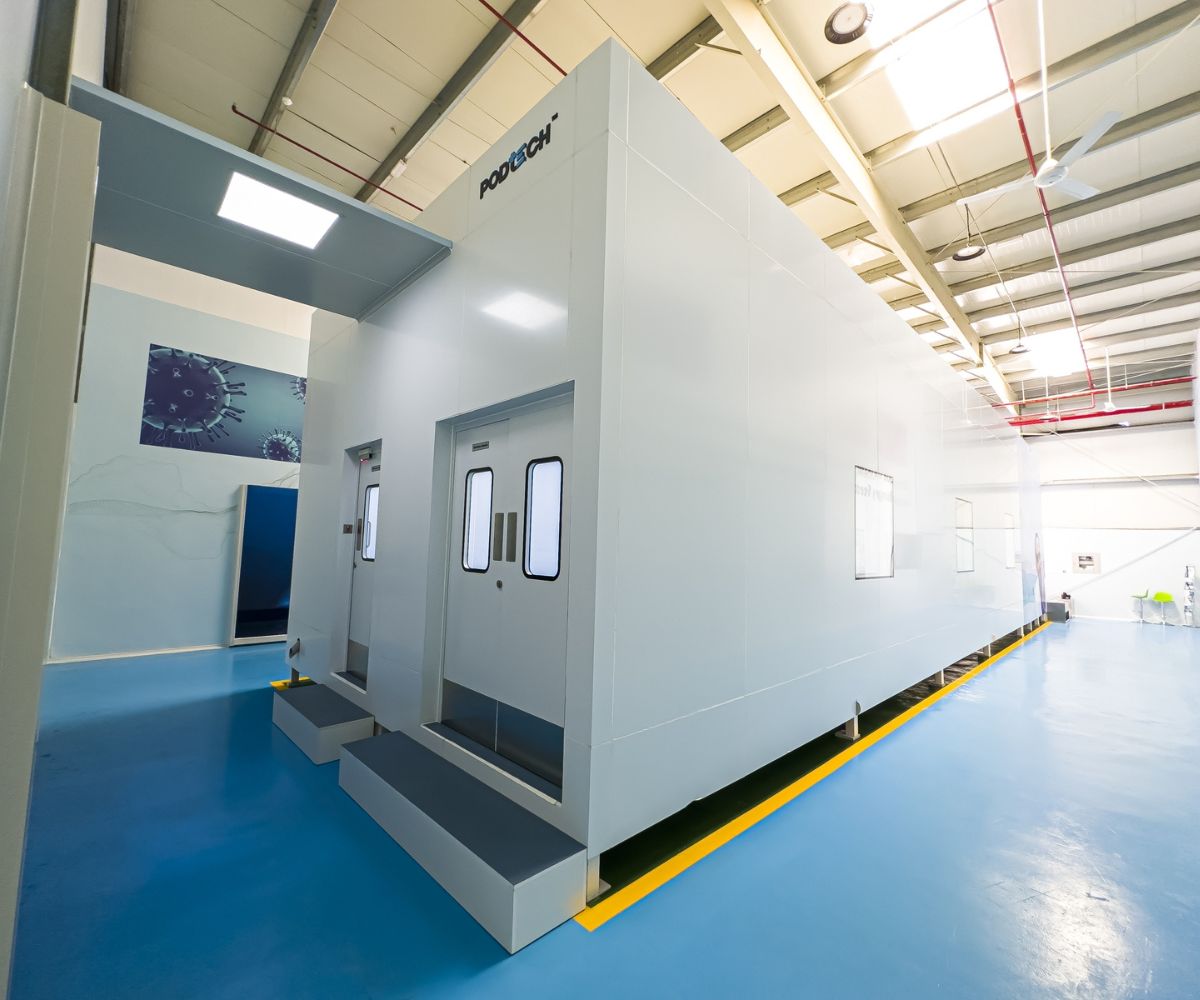
Introduction to Modular Cleanrooms and GMP
Modular cleanrooms are a revolutionary solution for industries requiring strict environmental control. These cleanrooms are designed to comply with Good Manufacturing Practices (GMP), ensuring the highest standards of hygiene, quality, and safety. Industries such as pharmaceuticals, biotechnology, medical devices, and food processing depend heavily on GMP-compliant cleanrooms to maintain product integrity and meet regulatory requirements.
What Are Modular Cleanrooms?
Modular cleanrooms are prefabricated structures tailored to create controlled environments. Unlike traditional cleanrooms, modular cleanrooms are constructed using interchangeable panels, enabling faster installation, scalability, and flexibility. These structures are ideal for industries requiring specific cleanliness levels, as they adhere to ISO cleanroom standards and GMP regulations.
Key Features of Modular Cleanrooms
- Customizable Designs: Panels, doors, and windows can be customized to meet specific requirements.
- Ease of Installation: Modular components allow for quick assembly, minimizing downtime.
- Scalability: Easy to expand or modify based on operational needs.
- Cost-Effectiveness: Lower construction and maintenance costs compared to traditional cleanrooms.
- Enhanced Cleanability: Smooth surfaces and rounded corners reduce contamination risks.
Understanding GMP Requirements
Good Manufacturing Practices are a set of guidelines ensuring that products are consistently produced and controlled according to quality standards. GMP compliance in cleanrooms is essential to prevent contamination, mix-ups, and errors, ultimately safeguarding consumer safety. Key GMP principles include:
- Controlled Environment: Maintaining air quality, temperature, humidity, and pressure.
- Validated Processes: Ensuring that all equipment and procedures meet predefined specifications.
- Personnel Hygiene: Strict protocols for clothing, handwashing, and behaviour within the cleanroom.
- Documentation: Comprehensive records of processes, maintenance, and training.
Components of GMP-Compliant Modular Cleanrooms
1. Walls and Panels
The walls and panels in modular cleanrooms are made of materials such as aluminium, stainless steel, or PVC, which offer durability and resistance to chemicals. They feature smooth, non-porous surfaces for easy cleaning and reduced particle accumulation.
2. HVAC Systems
An efficient Heating, Ventilation, and Air Conditioning (HVAC) system is crucial for maintaining the desired air quality. HEPA and ULPA filters are used to remove airborne particles, ensuring compliance with ISO and GMP standards.
3. Flooring
GMP-compliant flooring is seamless and resistant to chemicals. Epoxy or vinyl flooring is commonly used, as it prevents cracks where contaminants can accumulate.
4. Lighting
LED lighting with sealed fixtures ensures adequate illumination without introducing contaminants. Anti-glare and energy-efficient lights are preferred in modular cleanrooms.
5. Doors and Windows
Hermetically sealed doors and flush-mounted windows help maintain pressure differentials and prevent contamination. Automatic or interlocking doors enhance safety and functionality.
6. Monitoring Systems
Advanced monitoring systems track critical parameters such as temperature, humidity, and particulate levels. Alarms and alerts ensure immediate corrective actions in case of deviations.
Advantages of Modular Cleanrooms for GMP Compliance
1. Flexibility and Scalability
Modular cleanrooms can be reconfigured or expanded easily, making them ideal for growing businesses or those with changing operational needs.
2. Faster Deployment
Prefabricated components significantly reduce construction time, allowing for quicker commissioning and regulatory approvals.
3. Enhanced Efficiency
With state-of-the-art technology and design, modular cleanrooms improve productivity while maintaining strict GMP compliance.
4. Cost-Effectiveness
Lower construction and maintenance costs make modular cleanrooms a financially viable option for businesses.
5. Regulatory Compliance
Modular cleanrooms are designed to meet the highest standards, including ISO 14644 and GMP guidelines, ensuring adherence to industry regulations.
Applications of Modular Cleanrooms
Pharmaceuticals
In the pharmaceutical industry, GMP compliance is non-negotiable. Modular cleanrooms provide a controlled environment for the production of sterile drugs, vaccines, and biologics.
Biotechnology
Research and development in biotechnology require precision and sterility. Modular cleanrooms support these processes by maintaining contamination-free conditions.
Medical Devices
The manufacturing of medical devices demands stringent quality control. Modular cleanrooms ensure a contamination-free environment for assembly and testing.
Food Processing
Hygiene is paramount in the food industry. Modular cleanrooms help maintain cleanliness during processing, packaging, and storage.
Electronics and Semiconductor Manufacturing
Highly sensitive electronic components require clean environments to prevent defects. Modular cleanrooms cater to the specific needs of this industry.
Steps to Implement a GMP-Compliant Modular Cleanroom
1. Conduct a Risk Assessment
Identify potential risks and contamination sources to design a cleanroom that mitigates these threats.
2. Define Requirements
Determine cleanliness levels, dimensions, and other specifications based on your operational needs.
3. Select a Reliable Supplier
Choose a supplier with expertise in GMP-compliant modular cleanrooms to ensure quality and regulatory adherence.
4. Installation and Validation
Work with experienced professionals for installation. Validate the cleanroom to confirm it meets GMP and ISO standards.
5. Regular Maintenance and Monitoring
Implement a maintenance schedule and use monitoring systems to ensure ongoing compliance and optimal performance.
Conclusion
Modular cleanrooms are an innovative and efficient solution for industries requiring GMP compliance. Their flexibility, cost-effectiveness, and high standards make them the preferred choice for maintaining product quality and safety. By understanding the components, advantages, and applications of modular cleanrooms, businesses can make informed decisions to optimize their operations and meet regulatory requirements.





Leave a Reply